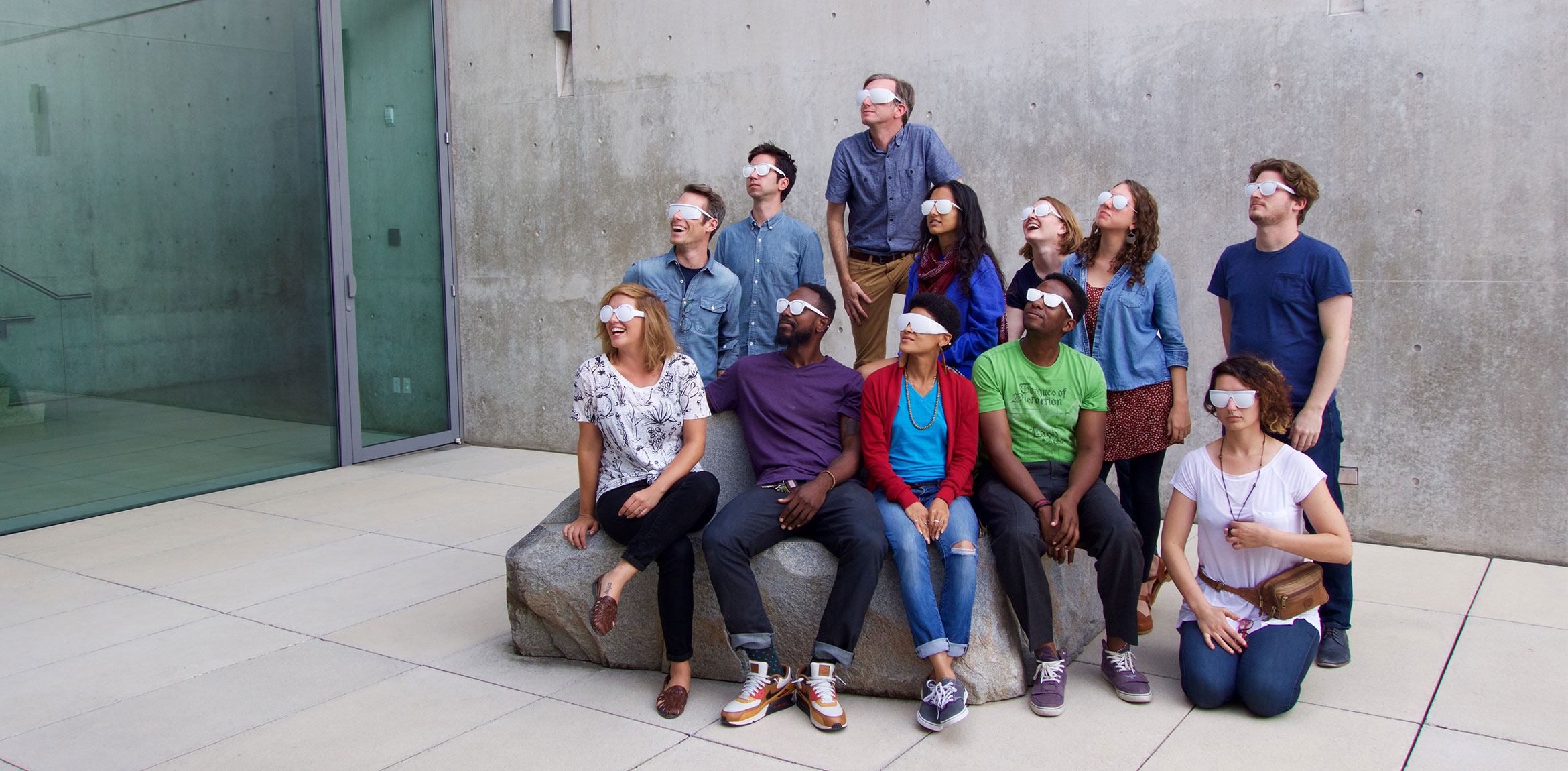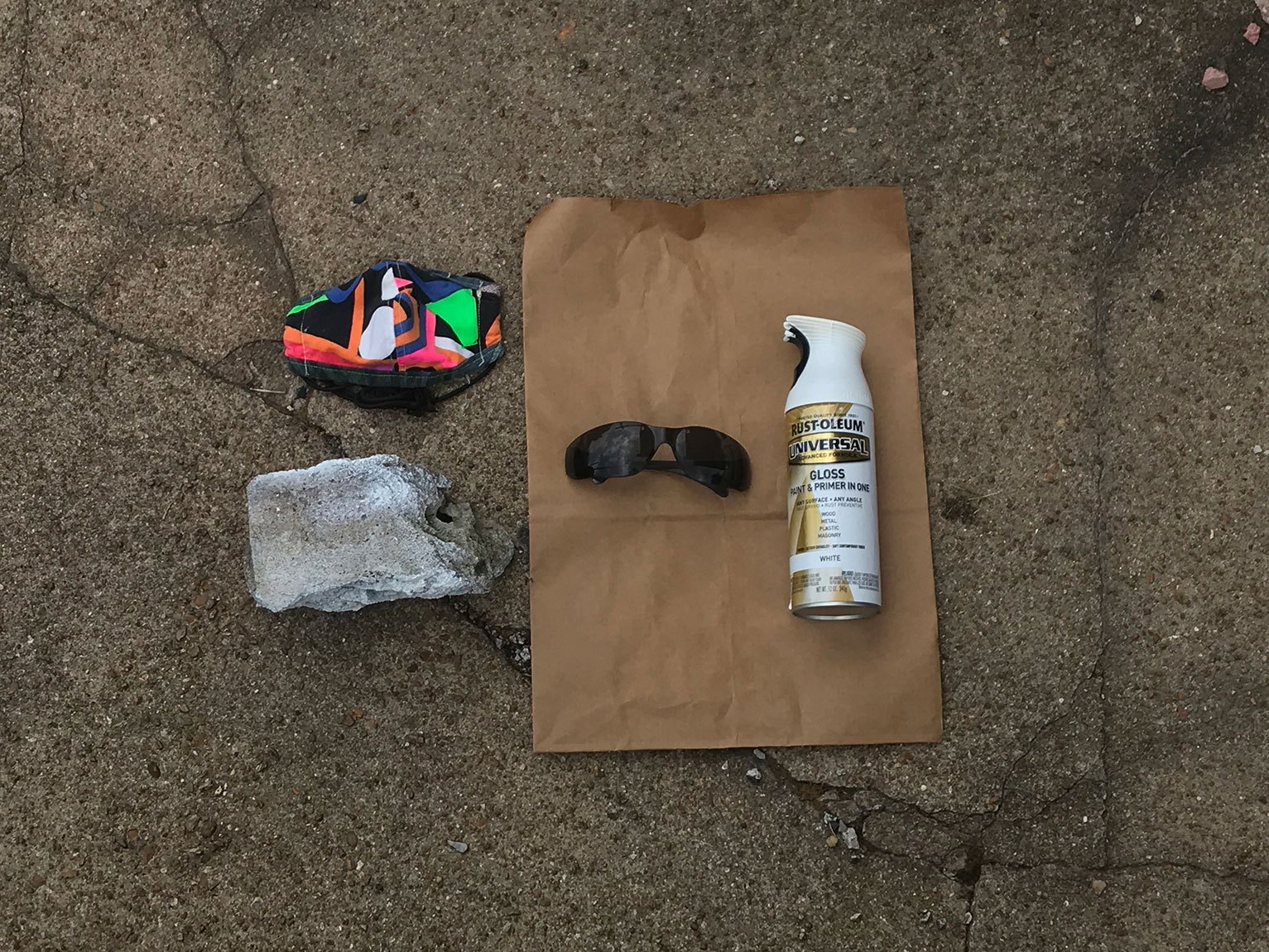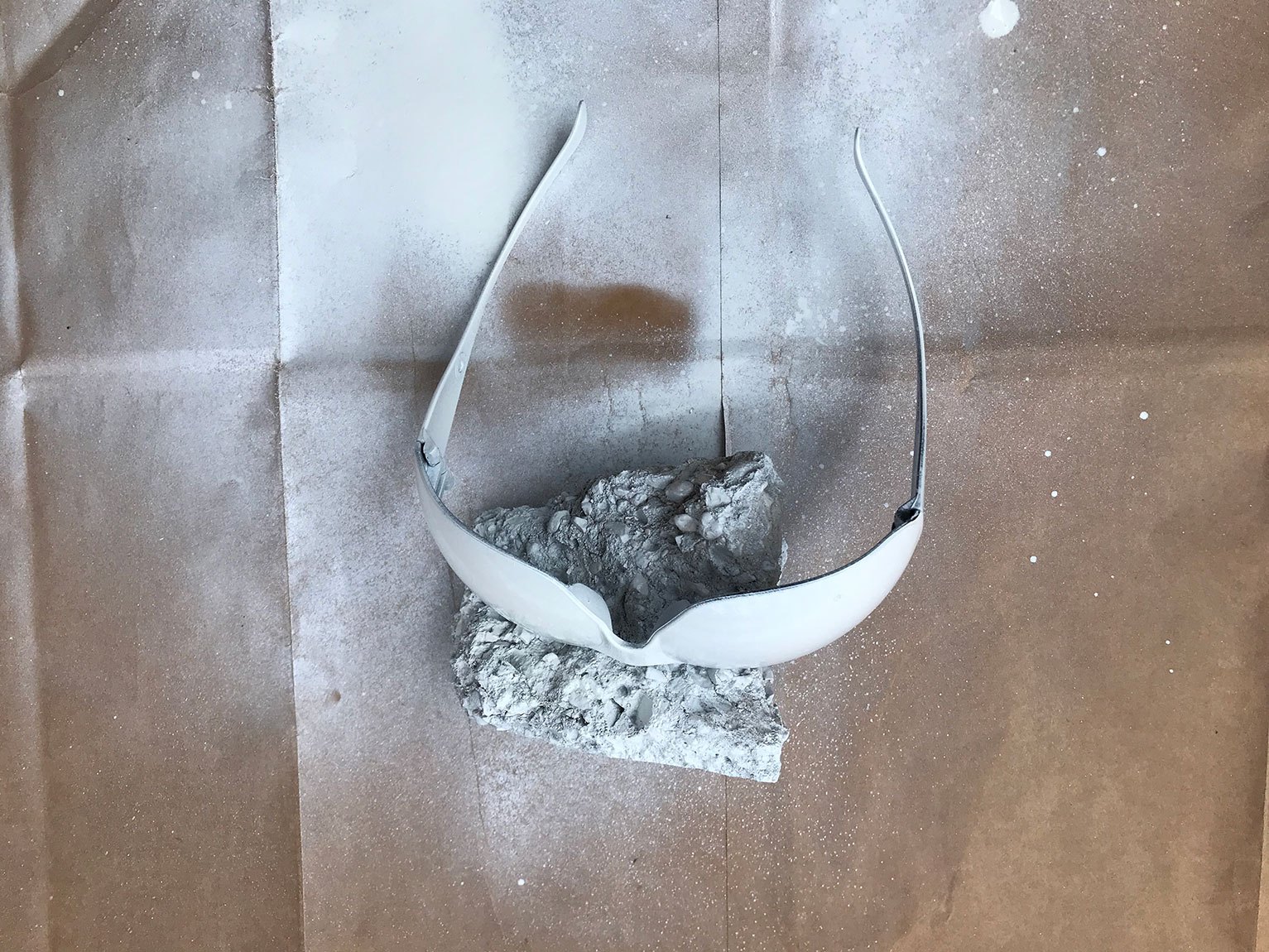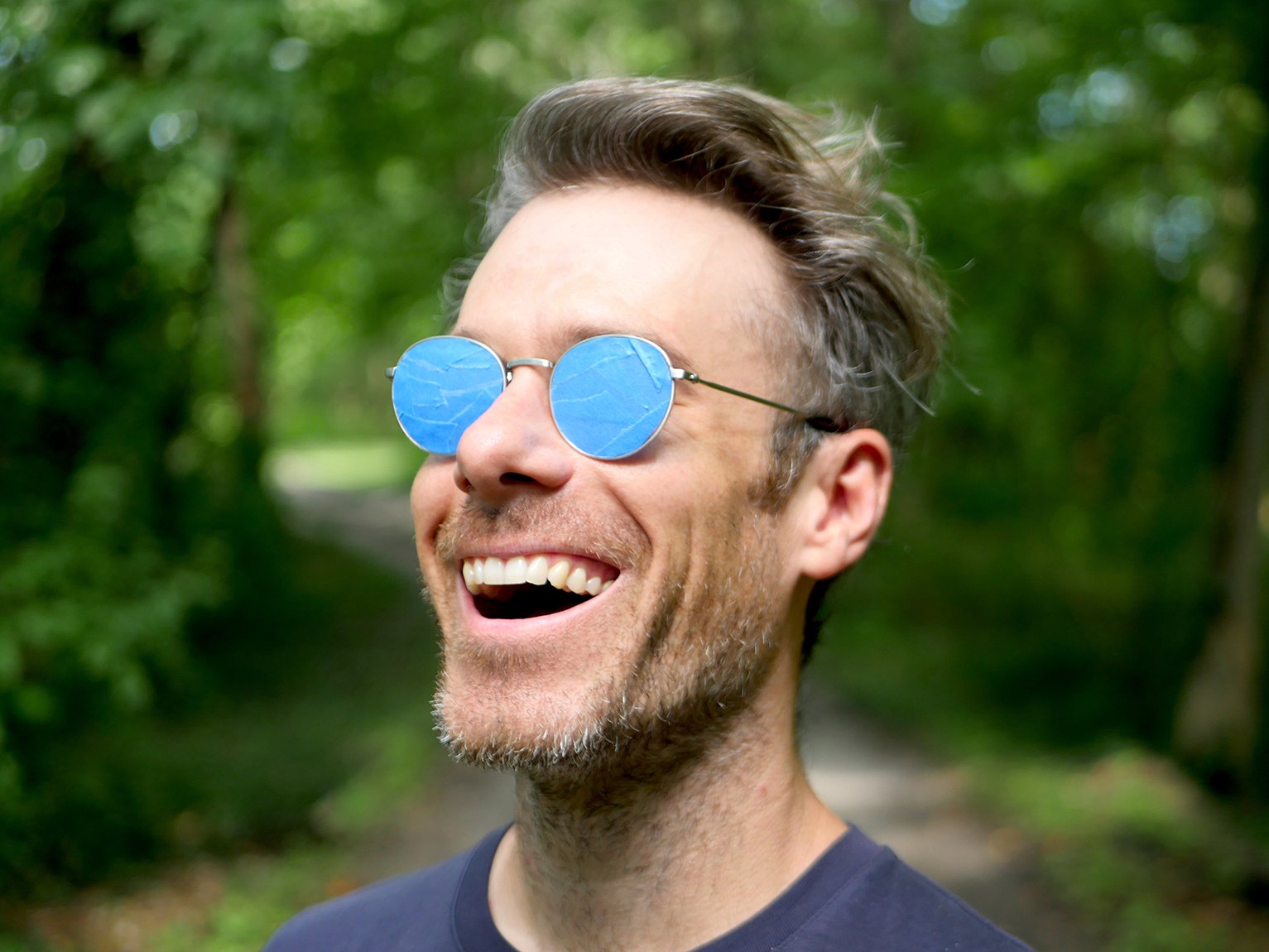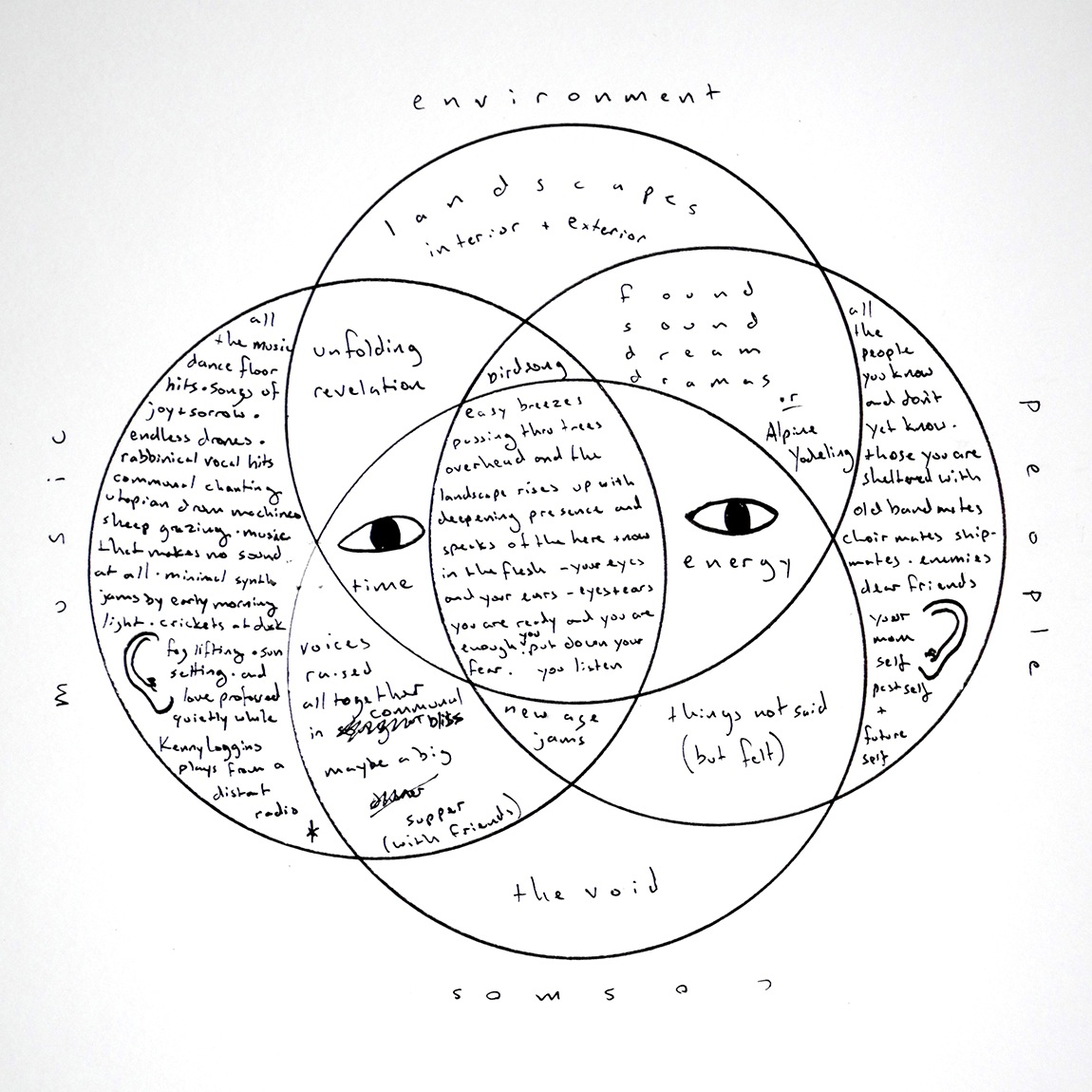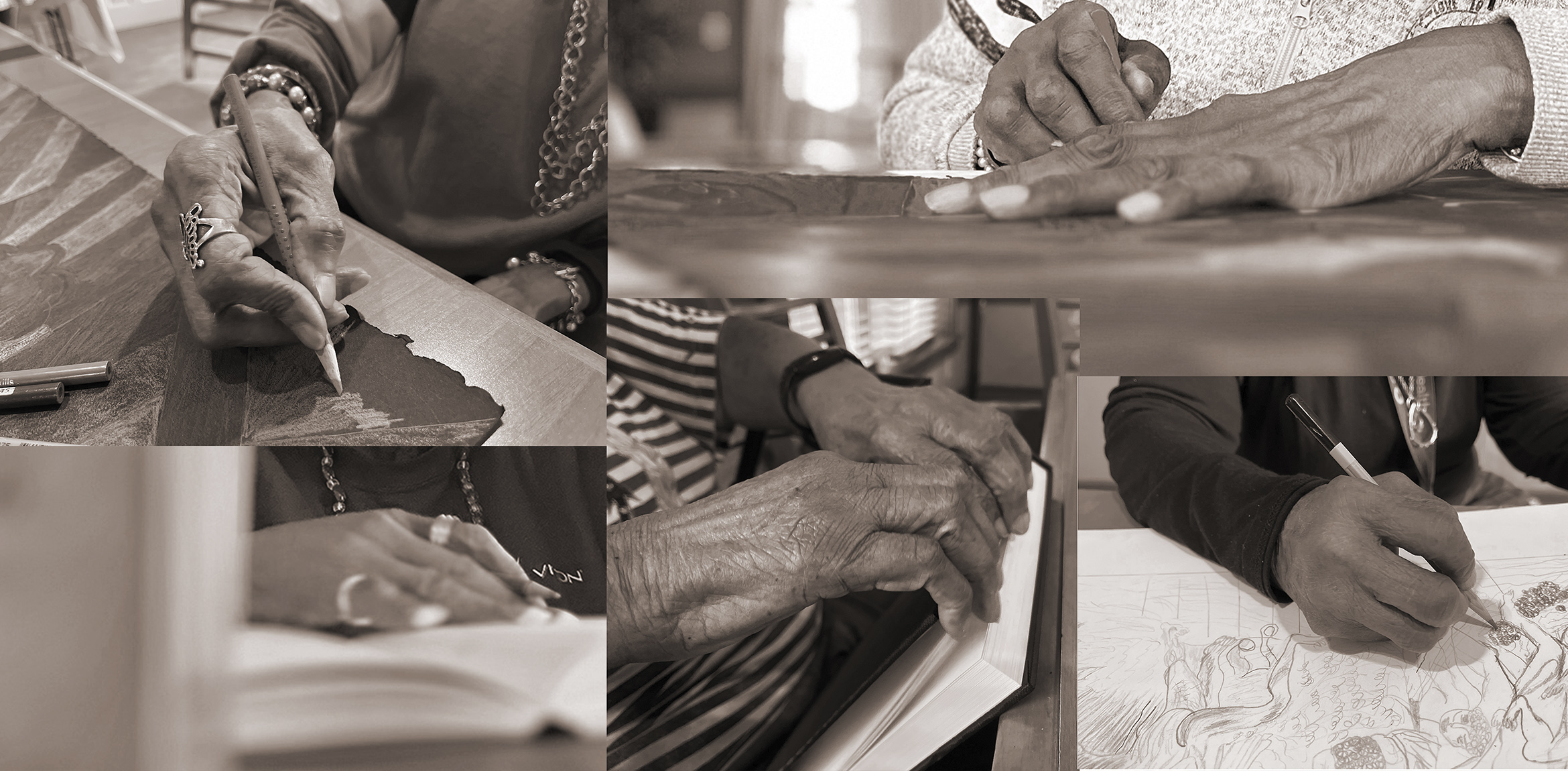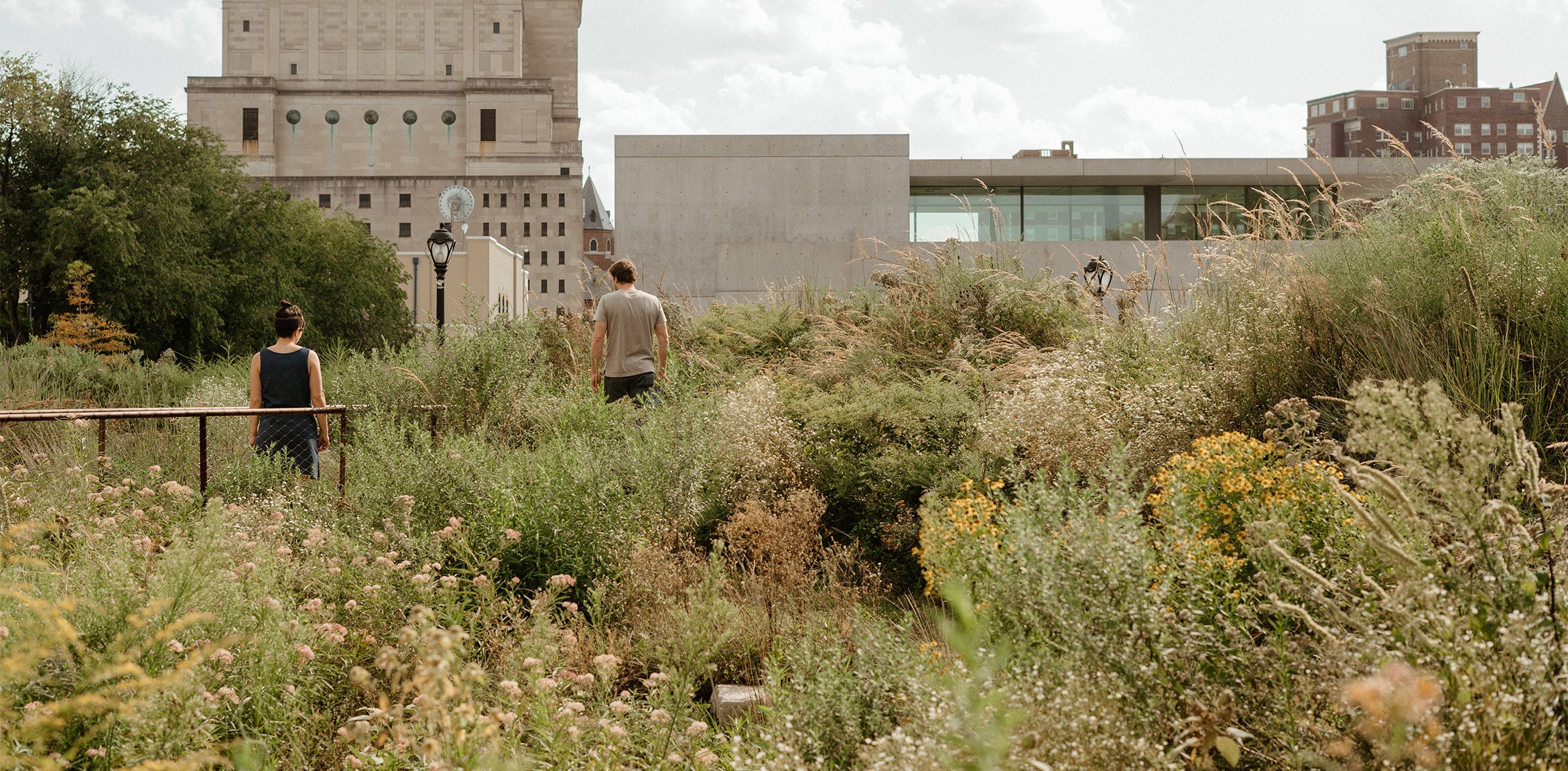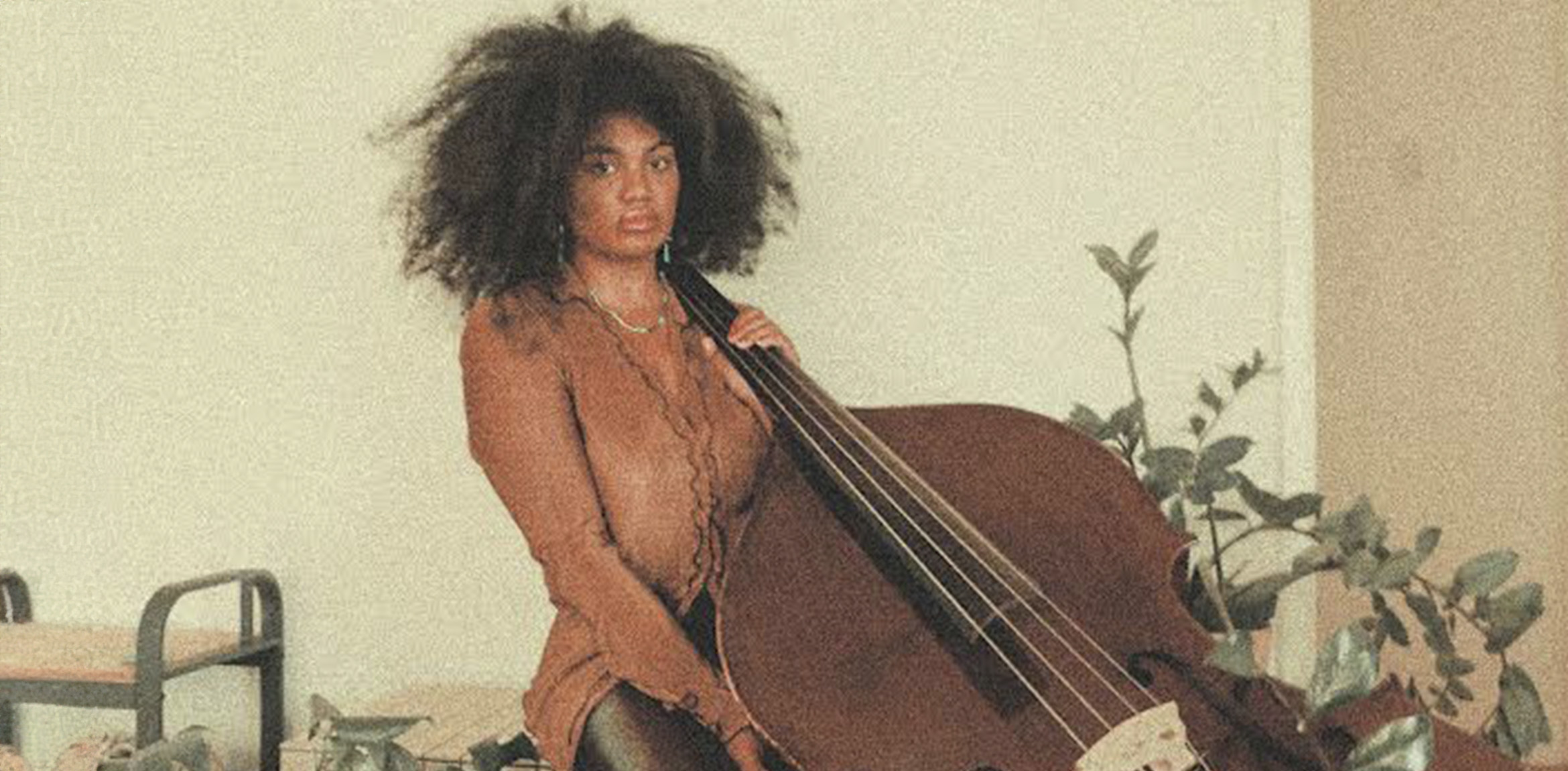This guide provides an introduction to your long-lost-friend, the ear. Through this brief series of exercises, you will learn how to direct and expand your attention, become more attuned to your quarantine-mates, and possibly even undermine the caustic effects of global capitalism. Since March, countless articles have been written about sound in the pandemic era, the quieting of cities, and the corresponding re-arrival of birdsong. Take Heed! We are living in a window where change is possible, but I have the feeling it won’t last forever. It’s time to notice, to name what we notice, and to devote ourselves to the discipline of attention. Active listening is rarely done with just the ears. It is instead a deeply internal experience – with the whole body and soul of a person.
For these exercises, I’d encourage you to make and use your own pair of Listening Glasses. The glasses are a training apparatus for attention, and when we put them on we temporarily remove the eye from its perch as the primary orienting force in the body. This act undermines the way in which our world is built and enriches our capacity to resist the visual landscape and the dangerous traps of the attention economy. When our eyes are blocked, Facebook means nothing, digital advertising has no effect, and even newspapers with their fresh horrors hold no sway. Instead, we are left with an alternative hierarchy of information, with the other senses running roughshod over the eye.
While you are at home this summer, I’ve devised five brief experiences that I think will help you to listen in different registers and tempos. Notice when you are listening, and most importantly notice when you aren’t listening! Listening often starts with music, but you have to be careful: Listening is powerful. Or as the sage musician, Pauline Oliveros would say, “listening is healing.” And as you begin to listen, you can dissolve the old you and a new version of yourself can grow in its place. Equally, when you actively listen to another person, the experience has the potential to demolish your preconceived notions about that person. When you listen to the sounds found in your neighborhood, you grant value to a music that is happening around you all of the time. Finally, how we listen and who we listen to informs how we act in both regional and global ways for social, political, and personal causes. Listening provokes change within ourselves, but if enough of us are listening in the pandemic era, we can make change in the world together.
LISTENING FITNESS
1. Go outside. Find a place to sit down. Sit down. Be quiet. Put on your Listening Glasses. Slowly identify the sounds closest to you, farthest from you, constant, periodic, tonal, noisy, familiar, and unfamiliar. Try listening for 5 minutes. 10 minutes. 20 minutes. A moment in the morning, and then a moment at dusk. Note the differences and begin to learn the place you live.
2. Listen to your quarantine-mate as if it were the first time: At 5pm lean against the fridge, put on your Listening Glasses, and ask them how their day went. Take it in. Listen. When they are done, take off the glasses and stop listening. Put the glasses back on, and ask them what they want to do this evening. Listen again, expanding your attention to encompass the color and tone in their voice. Take off the glasses. Alternatively, make many sets of glasses and sit everyone down in the living room to talk. Sitting is a great technique to get people to listen.
3. Put on your favorite record, or your least favorite record. Anything by Steely Dan. Something you usually don’t put on. Recline deeply. Put your feet up. You deserve it. Pretend you like the music until you really do.
4. Tune the radio to a position between the stations. Listen to the sounds between the sounds. This is the air. Listen to the air. Focus on your breathing. When the mind wanders, come back to the air. All we have is the space we create.
5. Listen to the soil – listen to the clay – listen to this bell made of Mississippi River clay. Whenever I hear a bell ring from a church or the city, I hear it saying, “this is mine – remember everyone that all this land is mine.” But if the bell is made of the land, then what is it saying? I hope it’s saying, “there is enough for us all.”
